National Lampoon's Christmas Vacation is one of the funniest Christmas comedies around, largely thanks to Chevy Chase's performance as the zany and somewhat-incompetent Clark Griswold. Watching him struggle with strings of lights, deal with his wild relatives, and unleash his iconic rant about his boss has become a holiday tradition beloved by viewers around the world.
Clark's main mission is to pull off a wonderful "good-old-fashioned family Christmas," and there's nothing wrong with that. But the road there is paved with good intentions, as they say. In spite of his noble pursuits, he is by no means the hero of the story. He might be the protagonist of this holiday tale, but he is also isn't the good guy.
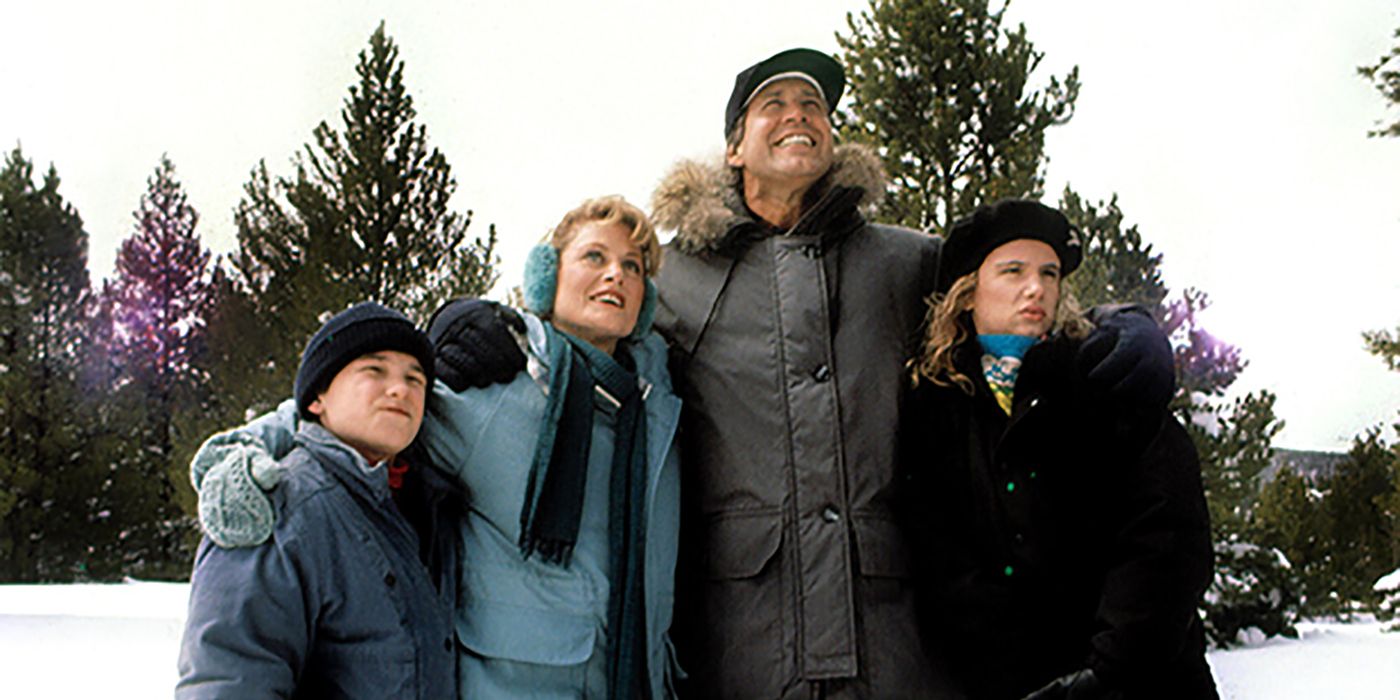
Right from the beginning of the film, Clark's dangerous habits are already bared at the forefront. Although there are many good-natured people who are guilty of a little road rage every now and then, Clark's prideful nature on the road puts both him and his family in danger.
Nobody should let a highway rivalry with pair of hicks on the road get in the way of their family's safety. Even before the guy launches his car beneath the trailer of a log truck, he's already guilty of vehicular negligence. He is venturing dangerously close to Mad Max territory

He might be one of the funniest movie dads, but he's nowhere near the one of best. If it's so cold outside that one's eyelids start to freeze, then maybe it's a good idea to turn back. Unfortunately for his daughter Audrey, Clark is more focused on landing the perfect Christmas tree from the middle of nowhere than her health.
It's one thing to be of a one-track mind, but to openly and willingly ignore the obvious health concerns of your child isn't just negligent, it's illegal. It might be an exacerbated scene, but it definitely doesn't paint Clark as the father of the year.
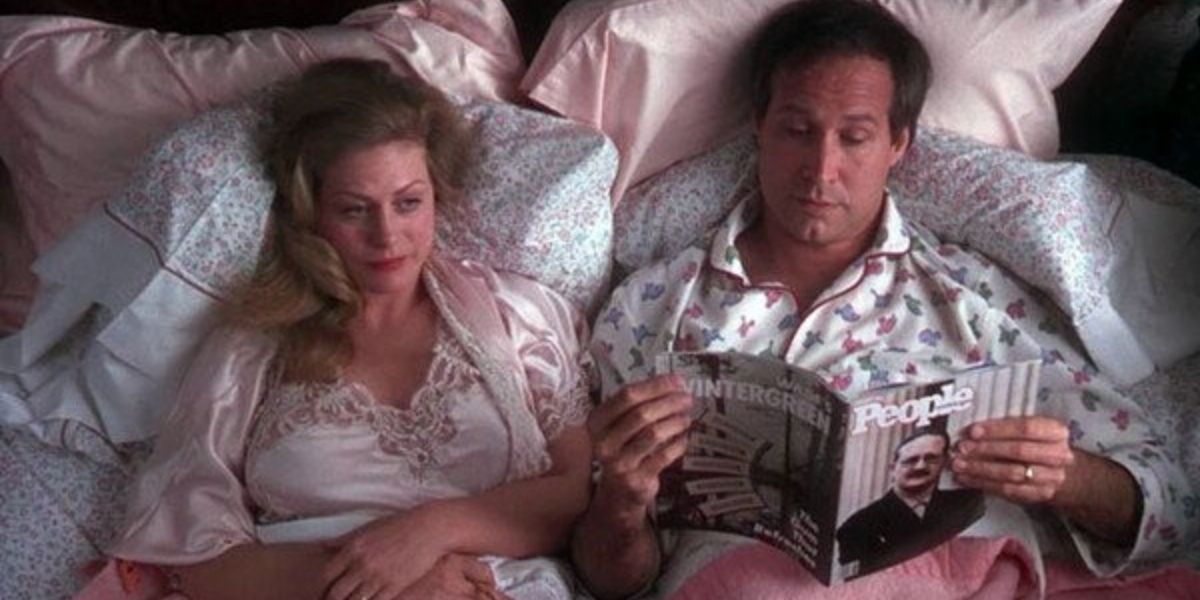
They say behind every great man is a great woman, but behind Clark is a woman wishing her husband made better choices. She knows her partner's habits and tendencies to fly off the handle, as indicated by their bedroom conversation. In spite of Ellen's warnings, Clark continues on with his pursuits, and disasters ensue.
Clark isn't what one would call obscenely negligent of his wife, they do love each other and that's made evident in the film, but it's clear he's not very considerate of her attempts to aid him. At least Ellen's funny lines don't go unnoticed.
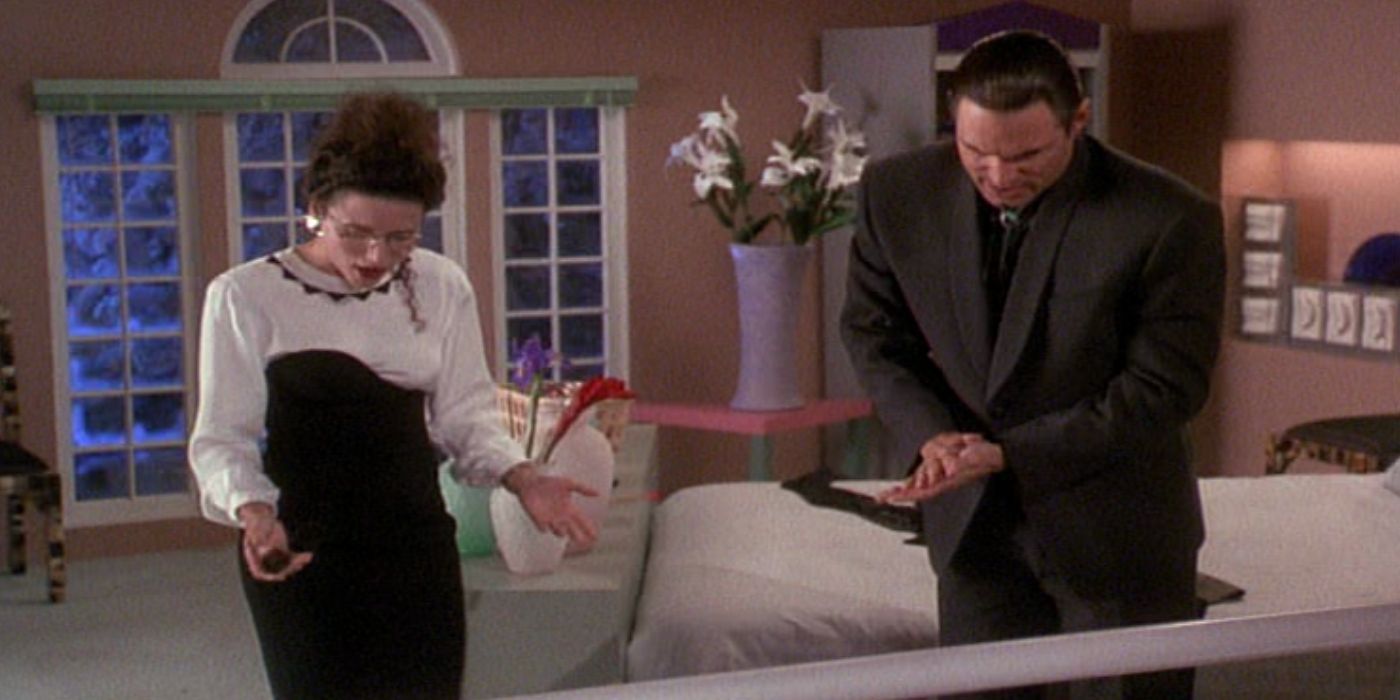
In Clark's defense, his remarks to his yuppie neighbors are some of the funniest lines in the movie. That being said, the "bend over and I'll show you" line might not sit too well with modern audiences. Things have definitely changed since 1989, after all.
It's one thing to take a jab at one's snobby, upper-crust, better-than-you neighbors, but lines about assaulting someone with a tree trunk aren't exactly the best way to start making friends.
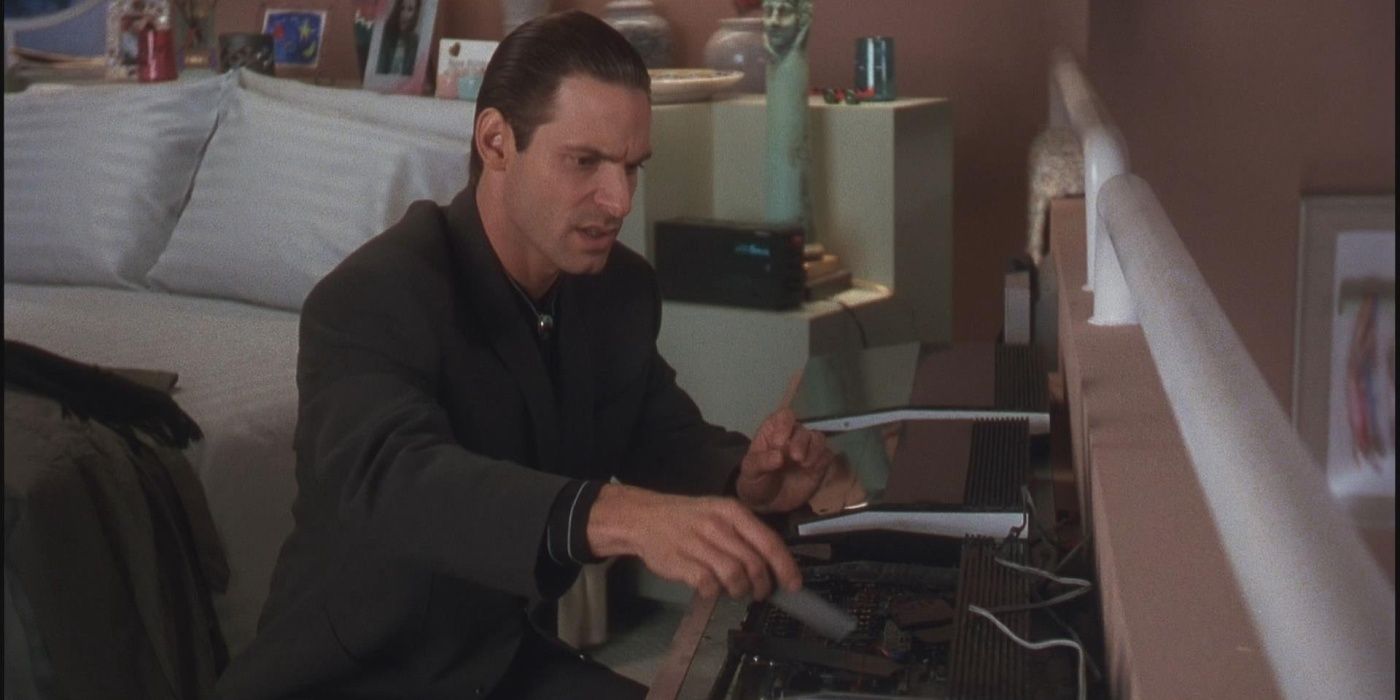
Whether it's by karma, accident, or Clark's own buffoonish negligence, it wouldn't be unreasonable to add destruction of property to his growing list of crimes. Because in one way or another, Clark is the catalyst that results in something of Todd and Margo's getting absolutely wrecked.
It might just be their pride, but it also might be their very expensive stereo. Regardless of whether it was intentional or not, all roads lead back to Clark whenever something unfortunate befalls the neighbors next door.
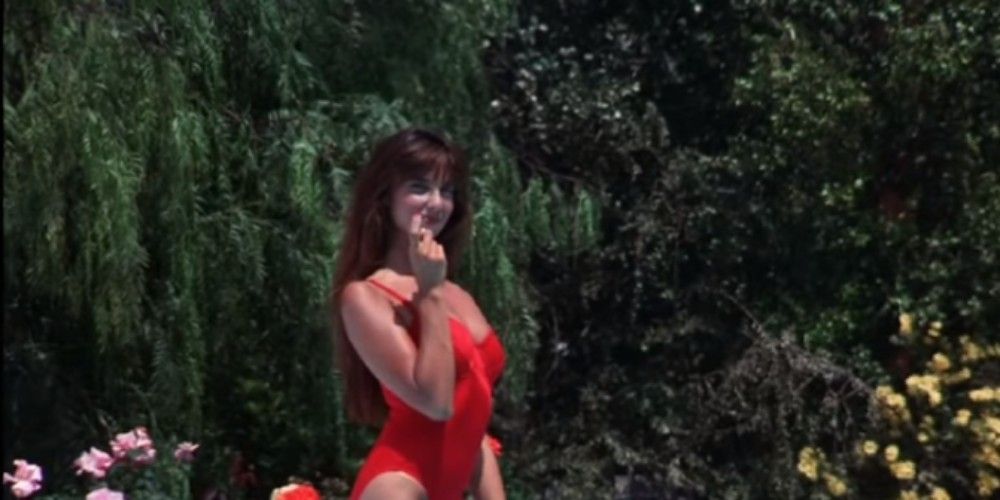
Sometimes Clark is just negligent, sometimes he's a dope, but other times he can be an absolute slimeball. Case in point, the incident with the woman at the lingerie counter. Yes, this is definitely a funny exchange with Clark slipping over his words while making eyes at the saleswoman, but he's supposedly a happily married man.
What makes it worse is that he doesn't even attempt to hide his attraction. While humorous at first, it definitely gets into sleazy territory as the bit progresses, especially after Russ catches his dad in the act.
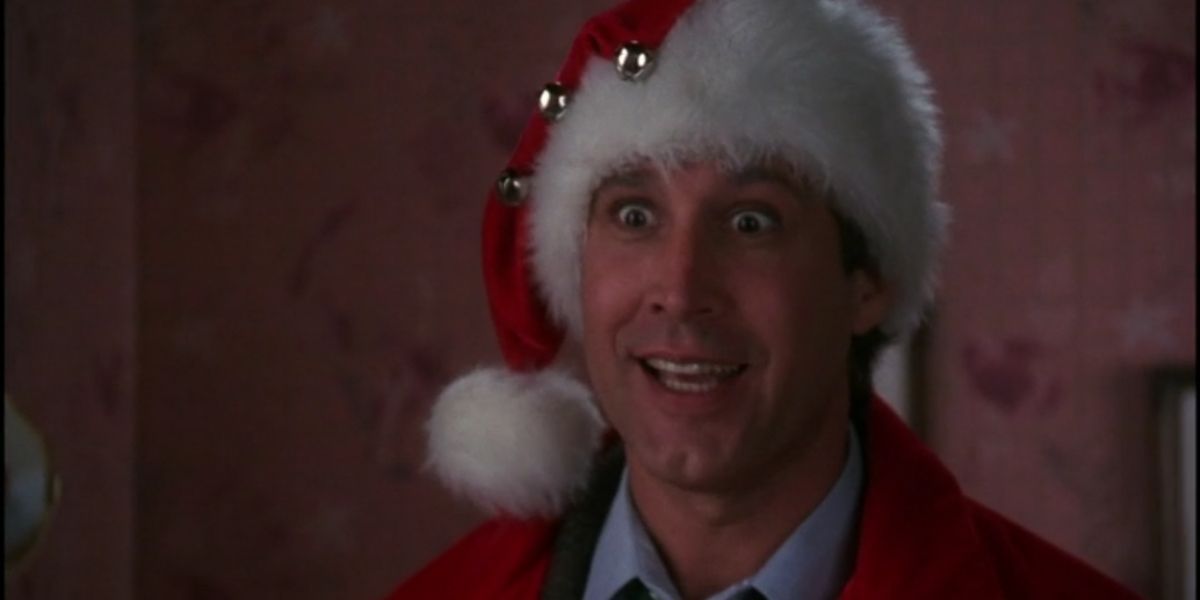
It's established right from the opening scenes of the film that Clark Griswold isn't exactly what most would call "cool as a cucumber." He is swift and prone to fits of rage, and neither his family, neighbors nor his own property are safe from his fiery wrath.
Even before his famously hilarious and hate-fueled quote about his boss, he's prone to more than a few violent outbursts of fury, including taking his rage out on a plastic Santa Claus. Honestly, these fits should have been an indicator of the chaos to come before the credits rolled.
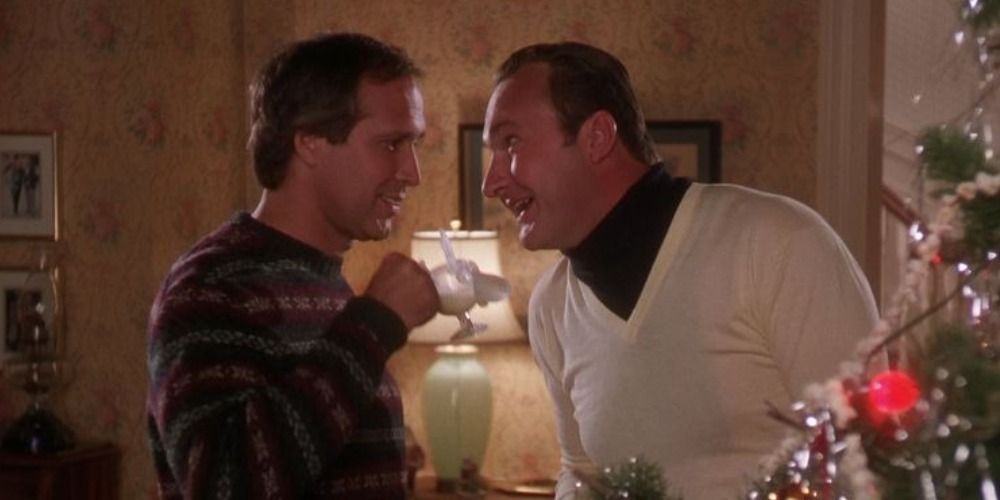
While this is mainly, and semi-understandably, directed at his oafish Cousin Eddie, Clark has the habit of absolutely tearing his family members to shreds. Along with Eddie, he also throws a few hurtful phrases at Uncle Lewis and Aunt Bethany behind their backs.
From threatening to leave Eddie for dead somewhere out in the wilderness to promising Uncle Lewis that it might be his last Christmas, some of his choice of words venture into abusive territory. He more than likely doesn't mean any of the hurtful things he says, and thank goodness none of his targets seem to notice, but it's not exactly the best behavior.

The scene involving the membership to the Jelly of the Month Club might be "the gift that keeps on givin'," but it's also one of the most vocal mental breakdowns in movie history. Yes, this is easily the funniest scene in the entire production, but it is by no means a scene that makes anyone feel sympathetic for Clark.
With one verbal avalanche of rage, fury, humiliation, and profanity, he not only rains verbal blows on his boss but has an entire freakout on his whole family as well. Hell hath no fury like a Griswold's scorn.
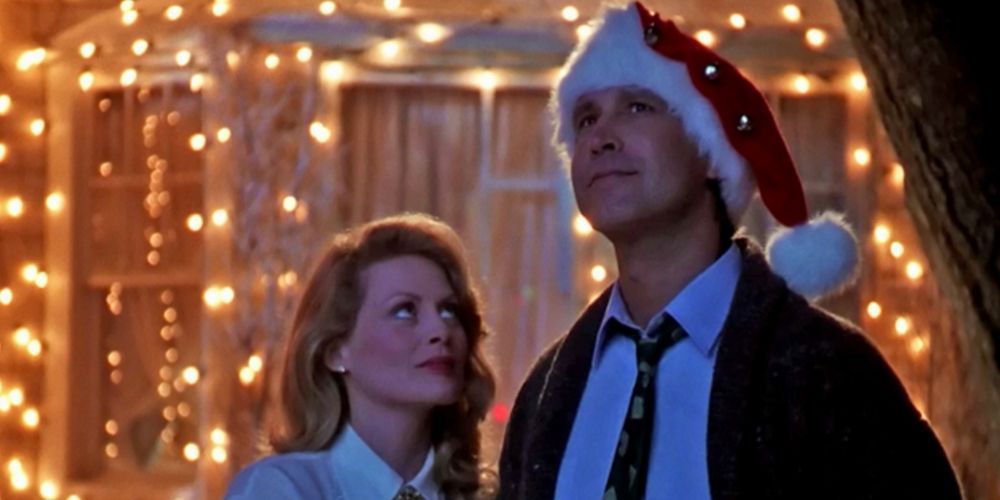
In most Christmas movies about a character trying to spend time with his family who completely misses the message of the holiday, said character normally walks away with a changed perspective, a better outlook, and an understanding of "the true meaning of Christmas." Think of the likes of Ebenezer Scrooge or the Grinch.
Clark Griswold is no such character. Keep in mind, there are multiple films in the Vacation franchise, meaning that Clark never changes. It's his way or no way, and his family experiences the repercussions inf full force. It's a pattern of behavior that doesn't change, nor does he seek to change it himself.
from ScreenRant - Feed https://ift.tt/3DQFdWB


0 Comments